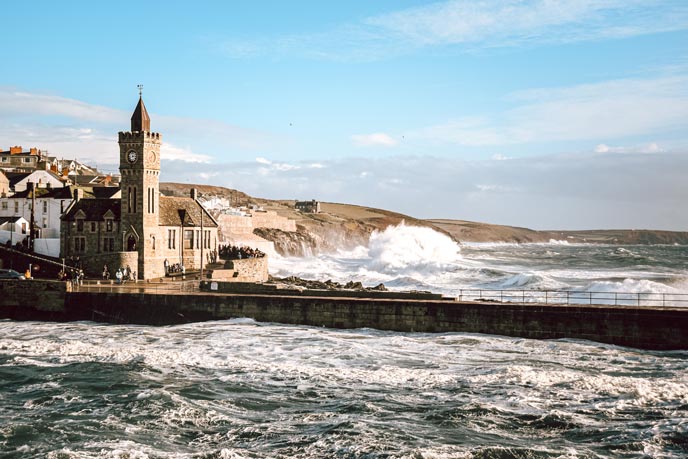How to protect your holiday cottage from storm damage
How to holiday letThe South and West is a wild and wonderful place which in the winter months can be witness to some awe-inspiring storms. Whilst storms make for spectacular viewing both inland and on the coast, holiday cottage owners may be wondering how best to protect their property from storm damage.

So you don’t get caught out, make sure you follow our top storm survival tips.
Keep an eye on the news
It’s always best to be prepared and keeping in the know when it comes to the weather will help you implement preventative action in plenty of time and minimise the risk to your holiday cottage.
The Met Office has a great website where you can check for details on forecasts and any potential warnings for your area. Keep your cottage stocked with plenty of things to keep your guests entertained when the rain starts and rest easy knowing your property is ready when the storm rolls in.
Perimeter checks
One of the best ways to prepare for a storm or heavy wind is to conduct simple and regular perimeter checks of your property, fencing and grounds, as well as checking anything overhanging from a neighbouring garden.
Unlikely culprits of much of the damage caused to properties during storms are trees. Tall and heavy, a falling tree or branch can cause massive destruction. Ensure you have checked for shallow roots and dead wood or rot, or hire a professional to help you.
Additionally, when checking your property make certain that you haven’t stored any electrical items outside, such as extension cables, at ground level to avoid them getting wet and posing a real danger.
Loose slates and tiles
Everything from chimneys to roof slates to ridge tiles should be checked prior to the worst of the weather. With high winds, slates and tiles can easily be dislodged. This is not only risky for your property but can also be dangerous for anyone standing below.
Blockages and flooding
When rough weather hits, rain is sure to follow. Flooding can occur all over the country, although holiday cottages located in dips and valleys are more at risk than others.
Implement a flood plan well in advance and if necessary, purchase sandbags ready to be used in an emergency. You should also assess your drains and guttering, as even the smallest of obstructions can cause blockages and big problems – problems that can be easily averted.
Fasten windows and doors
If you’re between guests, make sure you have secured the hatches and closed all gates, windows and doors properly. This will avoid unnecessary damage to your property and stop leaks from finding their way inside.
Batten down belongings
Make sure aerials, bins, fences, small garden ornaments and furniture are all securely battened down or moved inside. Everything from the trampoline to barbecue to garden gnome can be fastened or popped into a garage or shed. Not only will this prevent general wear and tear to your belongings, it will also rule out the chance of anything coming loose and wreaking havoc on your holiday home.
Frozen pipes
As winter grips the South and West colder temperatures can embrace the landscape, which can be a nightmare for property owners.
The second most common cause of domestic flooding, frozen pipes can easily crack and burst. If you’re not welcoming more guests for a while, turn your water supply off at the stopcock. However if you’re fully booked, maintaining a regulated temperature throughout your let and making sure your pipes are properly insulated will keep your holiday cottage flood-free.
Safe parking
If your guests are arriving by car, cut back any low hanging branches and remove anything that could be potentially displaced during a storm.
Keep safe!

